Belarus: ‘Women protesters experience less violence than men’
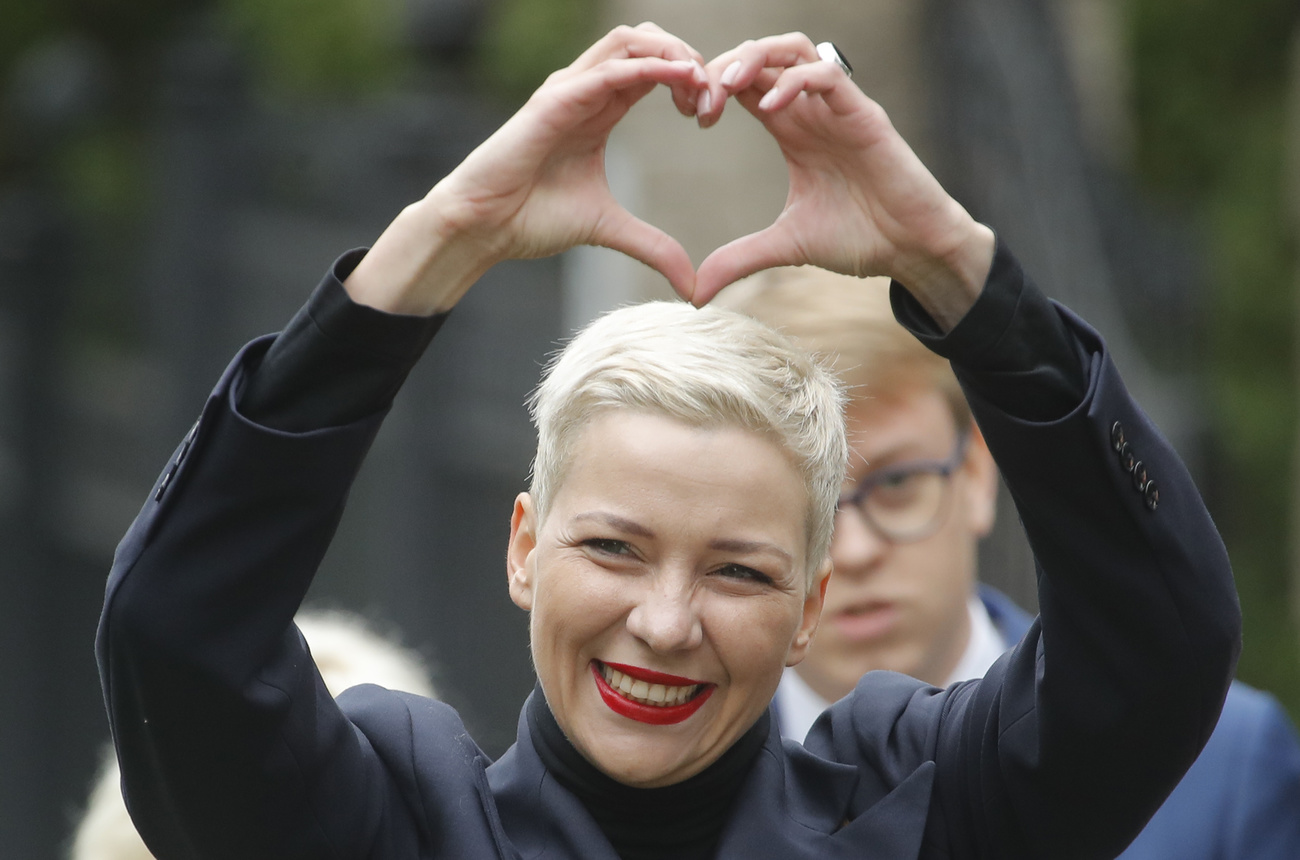
The number of women protesting against autocratic Belarusian President Alexander Lukashenko is strikingly high. Swiss political scientist Leandra Bias explains how being a woman is a strategic advantage in the fight against patriarchal regimes.
Leandra Bias was born in Zurich in 1988. She is a political scientist and recently submitted her dissertation, “Feminist Critique-ability in Authoritarian Times”, to the University of Oxford where she had previously studied Russian and European studies. She is now gender and peacebuilding advisor at swisspeace, a Swiss peace research institute.
swissinfo.ch: Why are women playing such an important role in the Belarus protests?
Leandra Bias: Women often play an important role in protest movements. The fact that it’s more apparent in Belarus can be attributed to two things: a trio of women were the main symbol of the opposition; the peaceful protests that occurred after the first three violent days when mainly men took to the streets were led by “Women in White”.
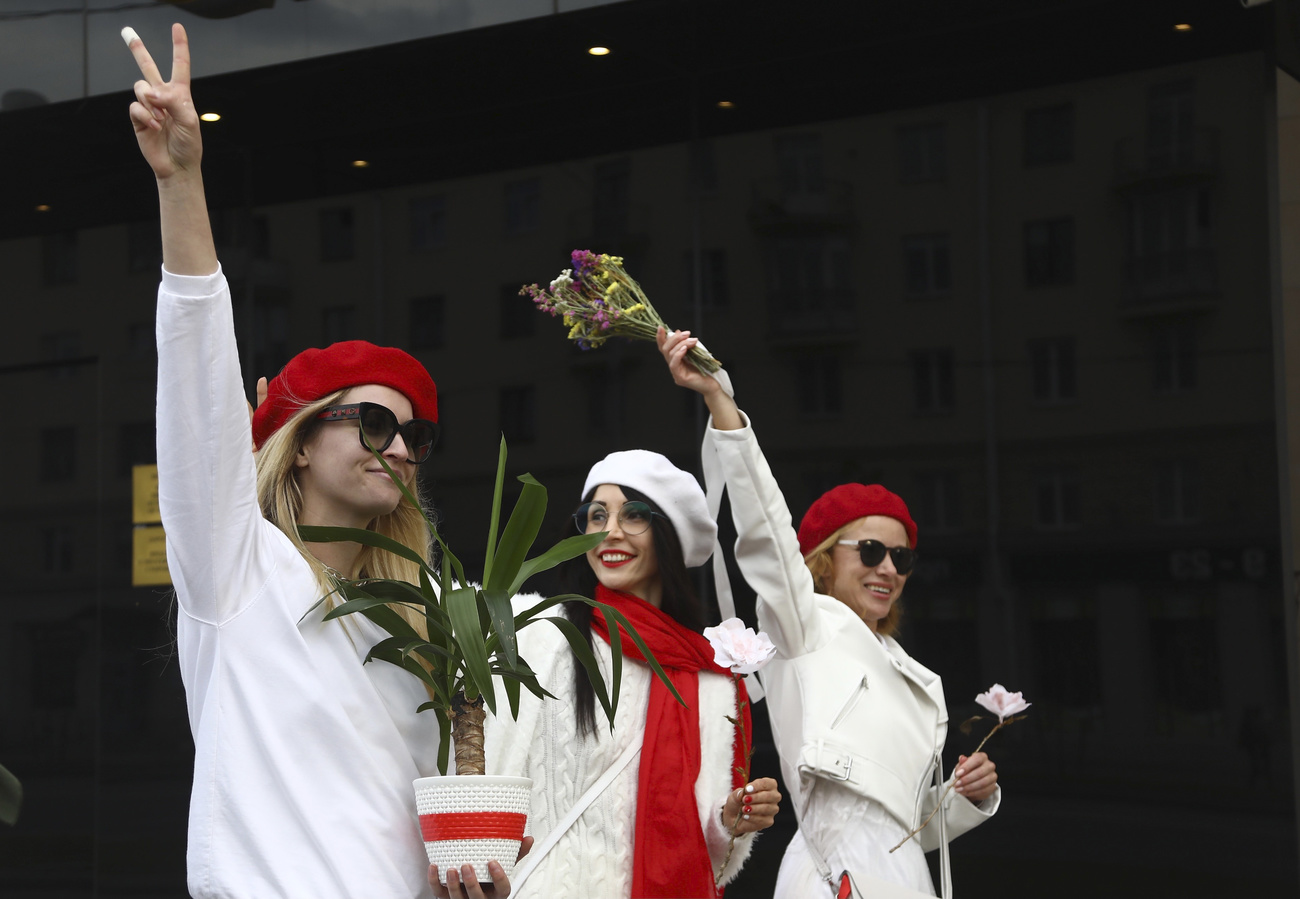
swissinfo.ch: What happened? Did all the men get arrested during the first three days?
L.B.: Women experience less violence than men when they take to the streets in an authoritarian regime. This is a kind of strategic advantage. Security forces within a patriarchal regime are less likely to attack them. In Belarus, however, this protection did not last long because a few weeks into the protests even pregnant women experienced brutal violence.
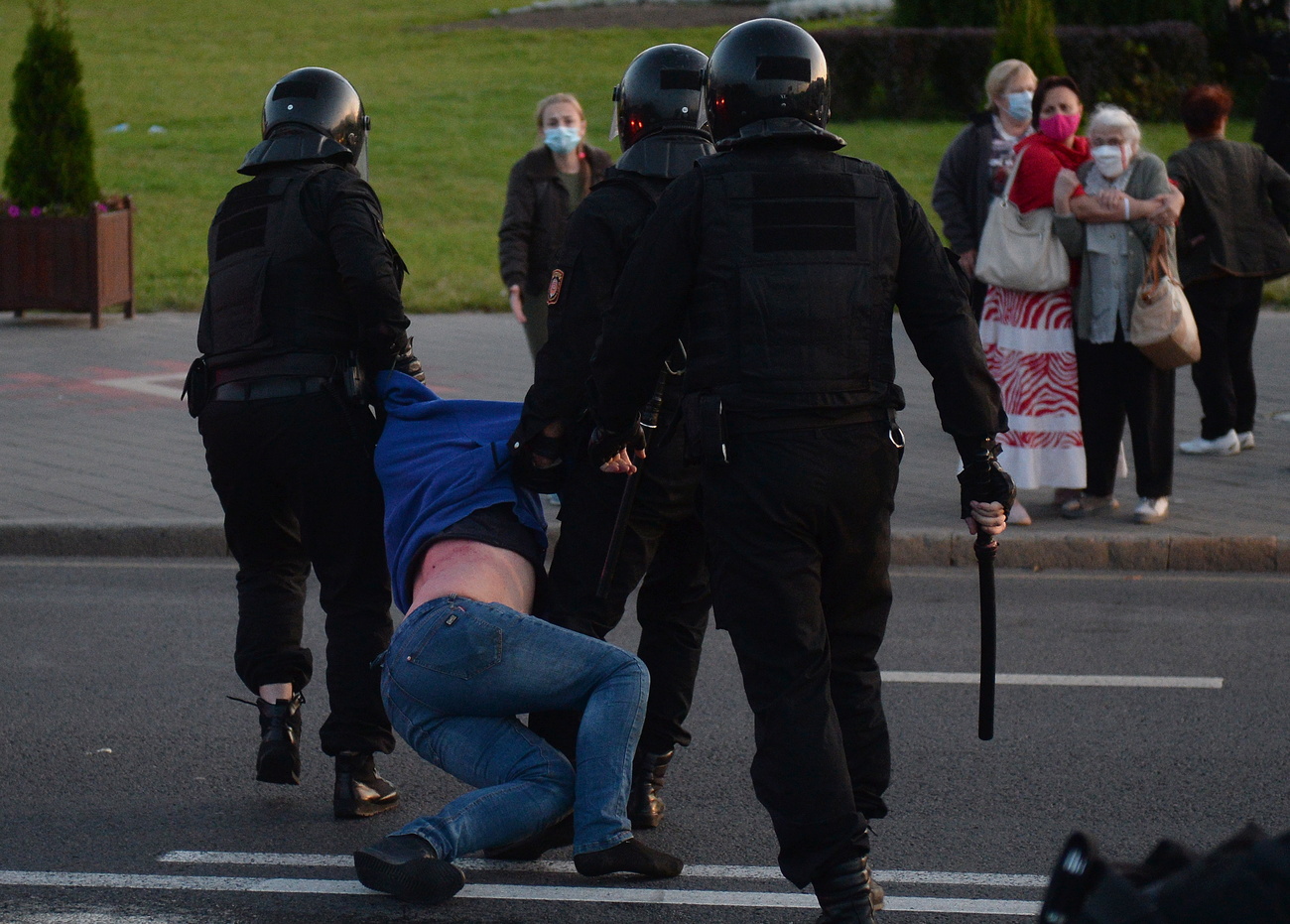
Since the start of 2020, young people have been increasingly politicised in Belarus. When the older generation witnessed security forces beating up their children, that was the final straw. Mothers took to the streets and people hoped they wouldn’t be attacked. Although being a mother might give you some protection, it also makes you vulnerable. One female TV journalist received threats that her children would be kidnapped.
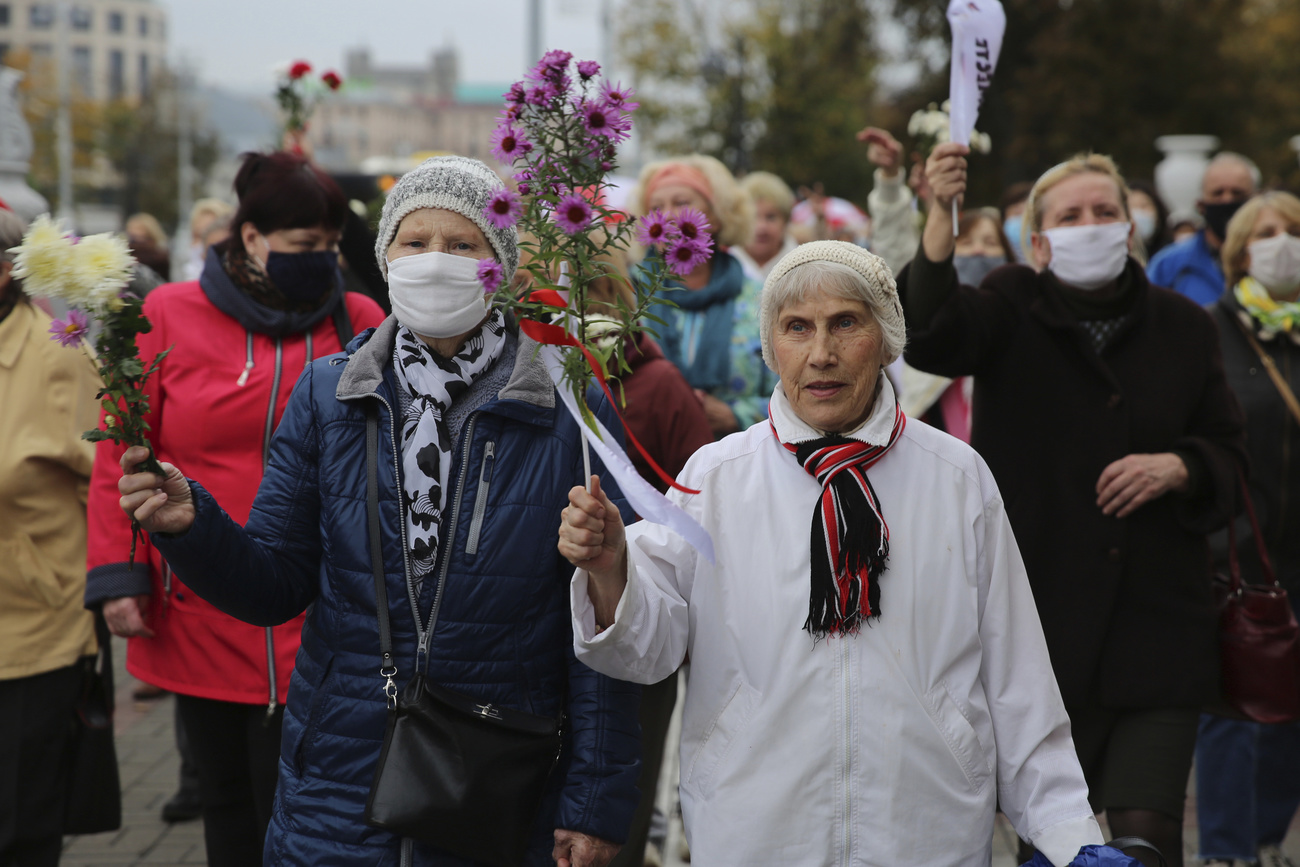
swissinfo.ch: It all started with a woman. Svetlana Tikhanovskaya triggered the protests because, being a woman, she flew under the regime’s radar.
L.B.: I would even say it started with three women. Svetlana Tikhanovskaya, the leader of the opposition, is married to the blogger and activist Sergei Tikhanovsky, who wanted to run for election. He and another member of the opposition were arrested by the authorities. A third member of the opposition was put under so much pressure that he fled the country. So three men were removed from the political fight. The wives of two opposition members and the female campaign manager of a third candidate joined forces and put Svetlana forward as a presidential candidate. The authorities allowed her to run because they never thought a woman would stand a chance of being elected.
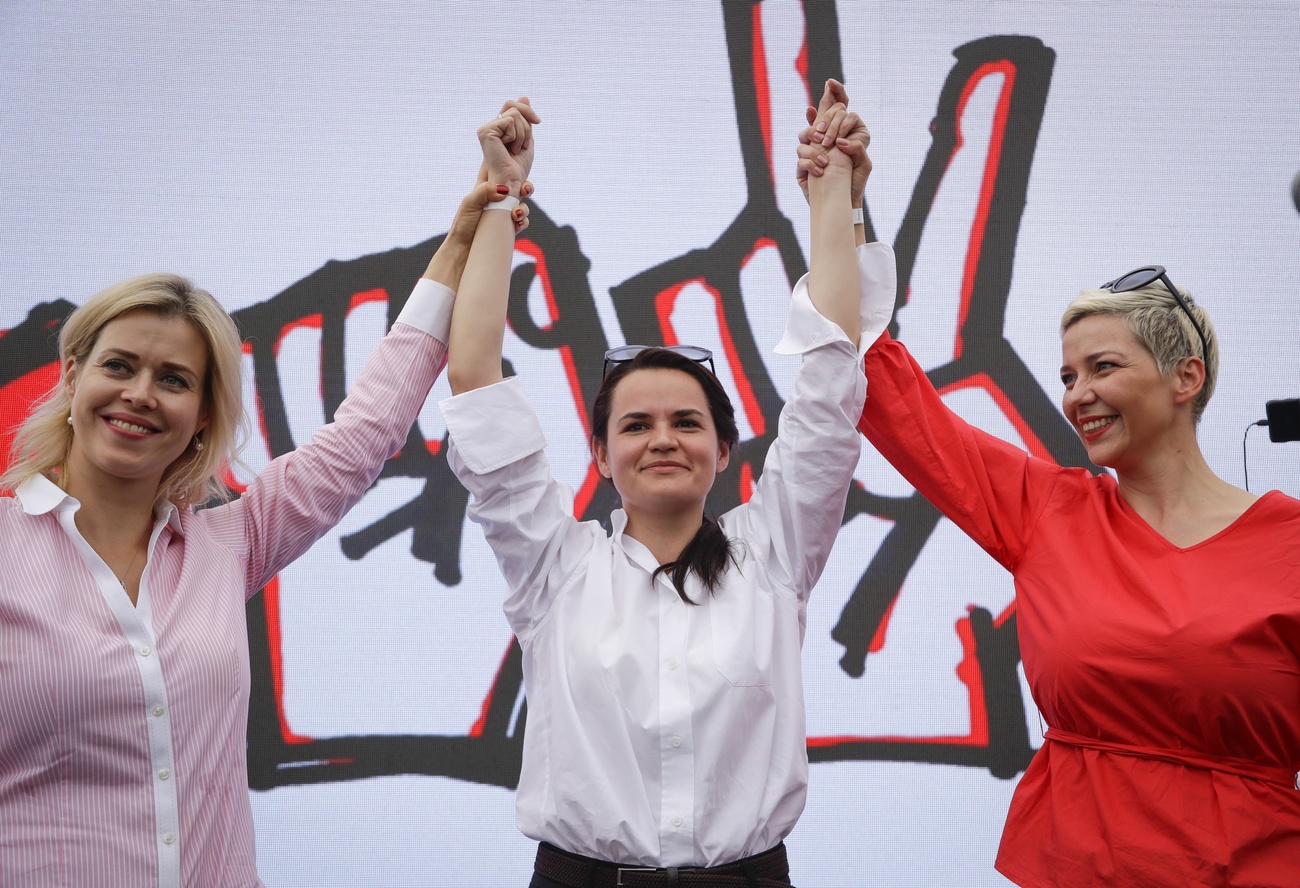
swissinfo.ch: In 2013 you lived in Belarus for almost six months to learn Russian. What was the atmosphere like and how has the situation changed since then?
L.B.: It has changed drastically. In 2013 I was very aware that I lived in an authoritarian regime though violence was not apparent. None of my female friends talked openly about politics, that was clear. For example, I organised couch-surfing events for locals and foreigners who met in cafés and spoke in English. Many café owners suspected the meetings were of a political nature.
When I returned to Belarus in 2017, the atmosphere was completely different. There were many independent hipster cafés, cool bars and breweries that weren’t there in 2013. Something had changed. You could literally feel the changes in the country, even by just looking around the city.
swissinfo.ch: You have friends in Belarus. What hopes do they put in other countries?
L.B.: Most people do put their hope in other countries because they can’t fight this battle alone. Diplomatic pressure from abroad is needed. It’s certainly not a coincidence that the Belarus diaspora is so active. And it’s not surprising that the authorities announced they were monitoring Belarus nationals living abroad. The foreign governments that back the protests are the real game changers.
swissinfo.ch: How do you feel about the international reaction to the protests?
L.B.: It should have been faster and stronger. The Organization for Security and Co-operation in Europe (OSCE) waited for several weeks before reacting. I put this down to the fact that it wanted to link its reaction to the poisoning of Alexey Navalny and to Russia.
swissinfo.ch: Why?
L.B.: Because Russia is an essential foreign player who is on Lukashenko’s side. Without Putin’s support, he would no longer be in power. Pressure can be put directly on the Belarus regime or indirectly via Russia. This is only possible if Russia is sanctioned for its own actions, which serves as a warning not to support the autocracy in Belarus.
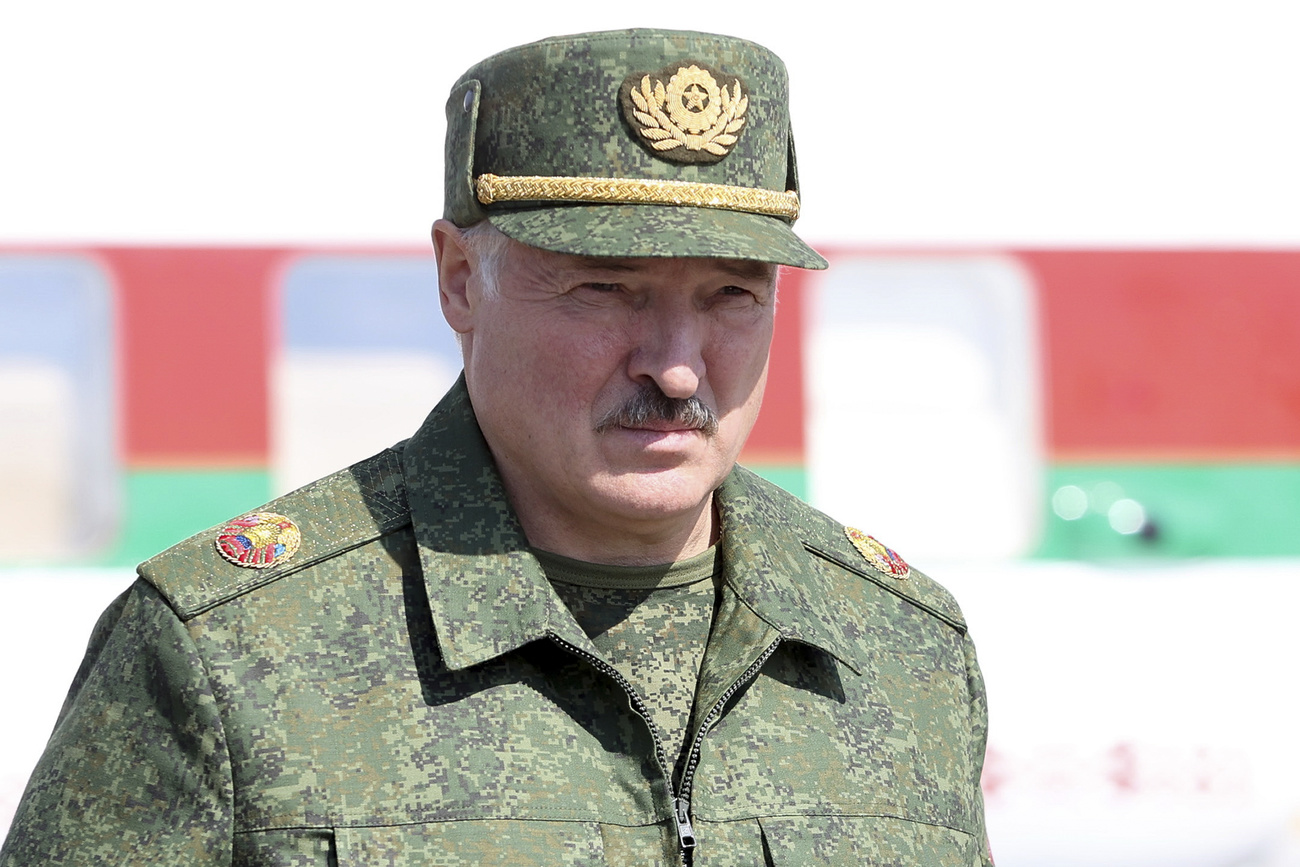
swissinfo.ch: After several members of the Belarus opposition fled to Poland and Lithuania, these countries’ diplomats were withdrawn from the Belarus capital, Minsk. As a sign of solidarity, Britain also recalled its ambassador. Switzerland, however, doesn’t plan to follow suit.
L.B.: Recalling an ambassador is not necessarily the most important thing, especially if a country intends to act as mediator. These two things do not rule each other out. It’s possible to condemn something publicly and impose sanctions and still maintain a dialogue in the background. The latter is easier with an ambassador on the ground – especially in Lukashenko’s case as he doesn’t respond to international requests for dialogue. For example, he has ignored the phone calls from German Chancellor Angela Merkel.
So I don’t think it’s a problem that Switzerland isn’t withdrawing its ambassador. However, I wish Switzerland had denounced the situation in Belarus sooner and with more clarity. Switzerland is highly regarded by Belarusians, and it should have made better use of its role model function. However, it put that function at risk by not taking a clearer stance.
swissinfo.ch: What do you think will happen to Belarus? Are you optimistic?
L.B.: I worry because the international community is not united enough. Tikhanovskaya has given Lukashenko an ultimatum: resign or begin a dialogue by October 26 – otherwise there’ll be a nationwide strike. The situation is complicated, and I fear there won’t be a democratic change by the end of the year. But I’m optimistic that in three years the regime will no longer exist – although people will have to pay a high price, in the form of more arrests and more human rights violations.
The Swiss government, in line with the European Union, already imposed a series of coercive measures on Belarus in 2006, and on October 2, 2020, Switzerland agreed to the EU’s decision to impose sanctions on Belarus. The foreign ministry expressed its concern about the tense situation in Belarus after security forces took massive action against peaceful demonstrators in the wake of the presidential elections. The ministry said Foreign Minister Ignazio Cassis spoke directly to the Belarusian foreign minister by phone.
Recalling the Swiss ambassador, just as the UK did last week, is not an option. “The foreign ministry uses the contacts it was able to strengthen with the opening of the embassy,” explains Pierre-Alain Eltschinger from the foreign ministry. “The presence of our ambassador and his team is important for monitoring the development on the ground and to do our best to help a Swiss-Belarus dual citizen who has been detained.”
Isabel Moret, president of the House of Representatives, met the Belarusian opposition leader Svetlana Tikhanovskaya last week.
(Translated from German by Billi Bierling)

In compliance with the JTI standards
More: SWI swissinfo.ch certified by the Journalism Trust Initiative

You can find an overview of ongoing debates with our journalists here. Please join us!
If you want to start a conversation about a topic raised in this article or want to report factual errors, email us at english@swissinfo.ch.